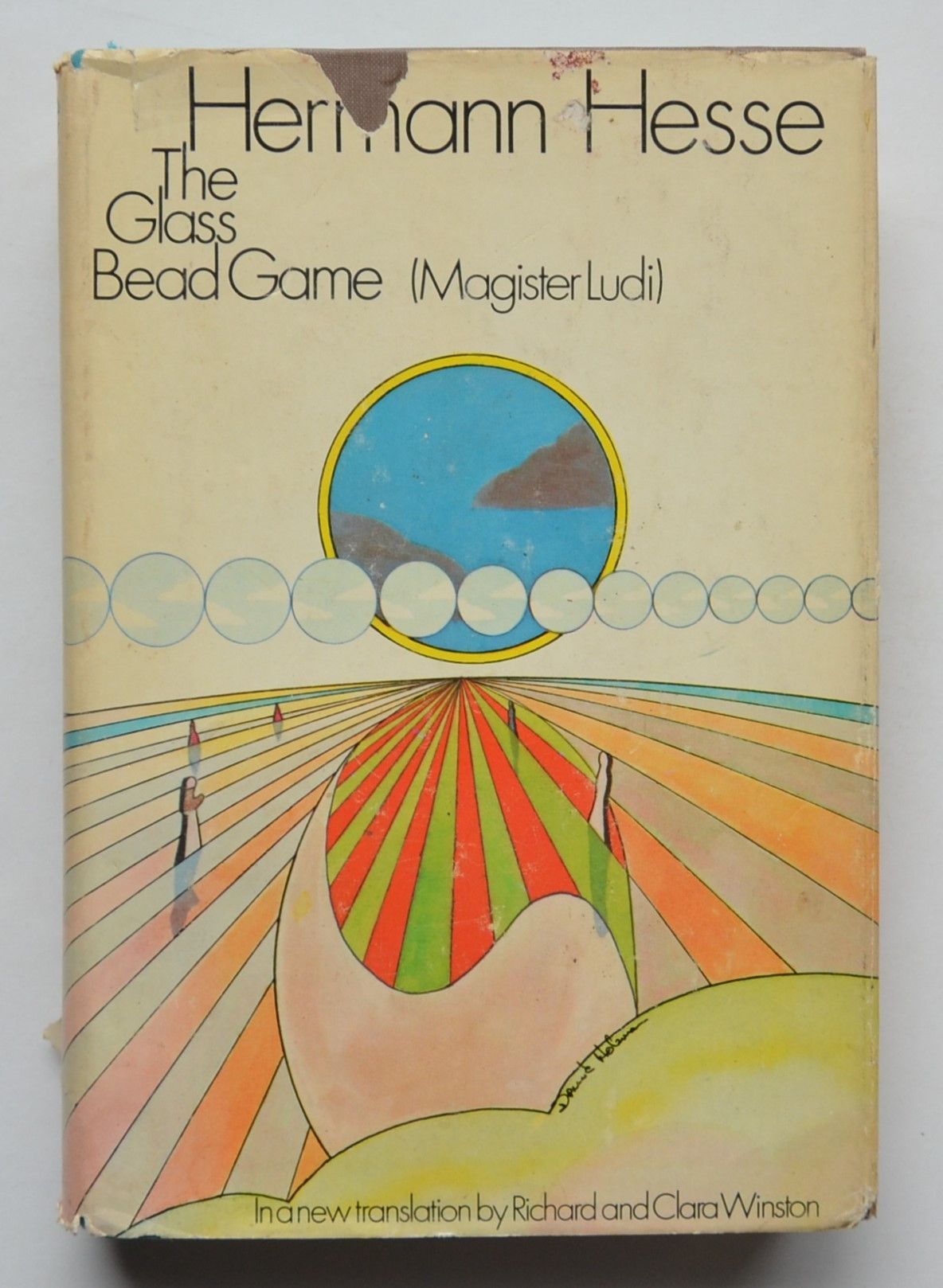Hermann Hesse’s The Glass Bead Game delves into the complexities of a future society grappling with the balance between intellectualism and real-world engagement. Set in the secluded province of Castalia, the novel centers around the enigmatic Glass Bead Game, a symbolic representation of humanity’s pursuit of knowledge and meaning. Written during a time of political turmoil, The Glass Bead Game offers timeless insights into the human condition that continue to resonate with readers today. Embark on a virtual journey to the enchanting muscat’s land and uncover its hidden treasures. Dive into a captivating synopsis with this insightful part of your world abby jimenez summary, exploring the depths of its narrative and themes.
Castalia: Haven or Ivory Tower?
Castalia, a utopian province dedicated to intellectual pursuits, serves as both a sanctuary and a potential prison for its inhabitants. Hesse presents this meticulously crafted society as a place where the brightest minds devote themselves to the Glass Bead Game, a complex synthesis of art, music, mathematics, and philosophy. This haven, seemingly dedicated to the pursuit of knowledge, prompts us to examine the potential dangers of intellectual detachment from the complexities of the real world. Does Castalia nurture true wisdom, or does it foster a form of elitism, isolating its members from the very experiences that make us human? This question lies at the heart of Hesse’s exploration.
Decoding the Game
The Glass Bead Game itself remains shrouded in mystery, its precise rules and mechanics never fully revealed. This intentional ambiguity allows the Game to function as a powerful symbol, representing the human quest for understanding and the integration of diverse fields of knowledge. Some interpret the Game as a metaphor for artistic creation, highlighting the human urge to synthesize disparate elements into a harmonious whole. Others suggest it represents the potential for intellectual escapism, a retreat into abstract thought that may ultimately detach individuals from the real-world problems they face. The Game, therefore, becomes a focal point for exploring the complexities and contradictions inherent in the pursuit of knowledge.
Joseph Knecht’s Quest
Joseph Knecht, the novel’s protagonist, embodies this central conflict. We follow his journey from novice to Magister Ludi, the master of the Glass Bead Game, witnessing his intellectual and spiritual growth within Castalia’s unique environment. However, Knecht’s eventual decision to leave Castalia suggests a growing unease with this seemingly perfect intellectual world. His departure raises profound questions about the nature of true fulfillment. Does it lie within the confines of intellectual pursuit, or does it require a deeper engagement with the messy realities of human experience? Knecht’s choice suggests that a balanced life, integrating both mind and world, is essential for achieving genuine self-discovery.
A World in Crisis: The Novel’s Historical Context
Written during the tumultuous years leading up to World War II, The Glass Bead Game reflects the anxieties of a world on the brink of catastrophe. Hesse, a staunch pacifist, witnessed the rise of totalitarian ideologies and recognized the potential dangers of intellectual detachment from human concerns. The novel, published in Switzerland in 1943 after being rejected by Nazi Germany, invites us to consider the role of intellectuals in a society facing profound challenges. Does Castalia represent a refuge from a world in chaos, or does it symbolize a form of intellectual escapism, a retreat from the responsibilities of engaged citizenship? The blurred lines between these interpretations enrich our understanding of the novel’s enduring relevance.
The Game’s Resonance Today
The Glass Bead Game continues to speak to contemporary readers grappling with similar questions about the nature of knowledge, the role of intellectualism, and the search for meaning in an increasingly complex world. In our era of rapid technological advancement, specialization, and information overload, the allure of Castalia’s intellectual haven can be especially strong. Yet, the novel serves as a cautionary tale, reminding us of the potential dangers of isolating ourselves within intellectual echo chambers. It encourages us to seek a balance between specialized knowledge and broader understanding, between the life of the mind and the life of the heart.
What is The Glass Bead Game theory?
The Glass Bead Game doesn’t present a “theory” in the traditional sense of a scientific hypothesis. Instead, it offers a complex exploration of knowledge, intellectualism, and the human condition through the symbolic representation of the Glass Bead Game. This “game,” intentionally left ambiguous by Hesse, acts as a metaphor for the ultimate intellectual pursuit: synthesizing diverse fields of knowledge into a unified understanding. Imagine a universal language capable of expressing the interconnectedness of music, mathematics, art, and philosophy. This, in essence, is the concept behind the Glass Bead Game—an ongoing exploration of intellectual synthesis.
The setting of Castalia, a dedicated province for this intellectual pursuit, further complicates this “theory.” As a seemingly utopian community, it raises questions about the potential isolation and elitism inherent in such a focused pursuit of knowledge. Does true understanding require detachment from the “real world,” or is engagement with its complexities crucial for a complete perspective?
Joseph Knecht’s journey, culminating in his decision to leave Castalia, adds another layer to this exploration. His departure suggests that even the highest intellectual achievement within this seemingly perfect environment may not satisfy the deeper human need for connection and real-world experience.
Furthermore, the historical context of the novel, written during the rise of fascism, adds another dimension. It suggests that Castalia could be interpreted as both a refuge from a turbulent world and a cautionary tale about the dangers of intellectual isolation and the potential allure of totalitarian thinking. The novel invites readers to consider these complexities and draw their own conclusions about the “Glass Bead Game theory” and its implications for our understanding of knowledge and the human condition.
What is the message of The Glass Bead Game?
The Glass Bead Game delivers a powerful message about the limitations of pure intellect and the importance of balancing intellectual pursuits with real-world experience. Through the allegorical setting of Castalia and the symbolic representation of the Game itself, Hesse explores the potential pitfalls of a life dedicated solely to the mind.
The central message revolves around the idea that true fulfillment and self-discovery cannot be achieved through intellectual isolation. Joseph Knecht’s journey, culminating in his decision to leave Castalia, underscores this point. His departure suggests that even the highest intellectual achievement, when divorced from the complexities of human experience, can leave a void.
The novel also critiques the notion of intellectual elitism. Castalia, while presented as a utopia for thinkers, also exhibits dystopian characteristics, highlighting the potential dangers of separating intellectual pursuits from the concerns of the wider world. The Game, though a symbol of intellectual synthesis, can also be interpreted as a form of escapism, distracting its players from the messy realities of human existence.
Hesse’s message resonates even more strongly in our modern age, where technology and specialization can create similar forms of intellectual isolation. The Glass Bead Game serves as a timely reminder of the importance of balancing our intellectual pursuits with engagement in the real world, fostering connections, and embracing the full spectrum of human experience. It suggests that true meaning is found not in abstract thought alone, but in the integration of intellect and experience, mind and heart.
How do you play The Glass Bead Game?
The Glass Bead Game, as conceived by Hesse, is not a game in the traditional sense with defined rules and a clear objective. Instead, it serves as a metaphor for the ultimate intellectual pursuit—the synthesis and integration of all forms of knowledge. Hesse intentionally keeps the mechanics of the Game ambiguous, emphasizing its symbolic nature. It’s not about winning or losing, but about the ongoing process of connecting seemingly disparate ideas and disciplines, exploring the underlying unity of human thought and artistic expression. Think of it as an intricate dance of ideas, a symphony where music, mathematics, philosophy, and art are woven together into a harmonious whole.
Castalia, the secluded province devoted to the Game, adds another layer of complexity. While seemingly a utopian haven for intellectuals, it also raises questions about the potential dangers of isolating oneself from the world. Does true understanding require this separation, or does it ultimately hinder our ability to connect with humanity and address real-world concerns? Joseph Knecht’s decision to leave Castalia suggests that a life solely dedicated to abstract thought may ultimately prove unsatisfying.
The historical context of the novel, written during a time of political and social upheaval, further enriches our understanding. It suggests that Castalia may represent both a refuge from a troubled world and a cautionary tale about the dangers of intellectual detachment and the potential allure of totalitarian thinking. The Glass Bead Game, therefore, invites us to contemplate the nature of knowledge, the role of intellectualism in society, and the importance of finding a balance between the pursuit of intellectual growth and a life fully engaged with the world around us. Our interpretation of the Game, and of the novel itself, likely continues to evolve as we grapple with these enduring questions.
- SYBAU See You Baby Meaning: Gen Z Slang Evolves - July 1, 2025
- Unlock Your Inner Youth: Lifestyle Secrets for a Vibrant Life - July 1, 2025
- Decode SYBAU Meaning: Gen Z Slang Explained - July 1, 2025






